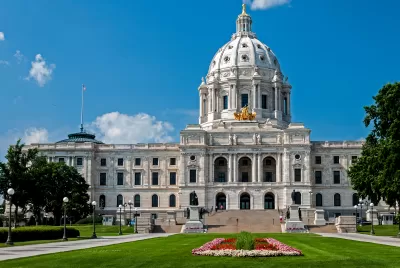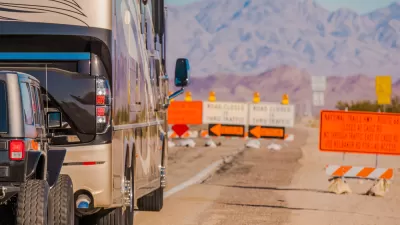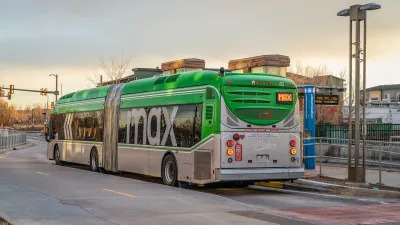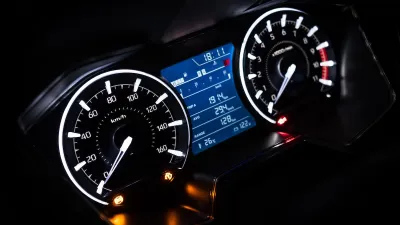After a contentious debate, the state legislature passed a budget that changes how transportation projects are funded and supports increased transit service in the state.

Minnesota just passed its largest transportation bill since 2008 as part of its $72 billion budget, reports Jared Brey in Governing, marking the culmination of “years’ worth of efforts by lawmakers and transit advocates to improve the way transportation projects and public transit operations are funded.”
According to lawmakers, “creates more stable financing for roads and bridges, provides new recurring funding for public transit, allocates $200 million for a new passenger rail line connecting the Twin Cities to Duluth, and forces state agencies to make good on aspirational climate goals.”
State legislators say the bill, which ties the state’s gas tax to inflation to boost transportation funding, creates a new Transit Rider Investment Program (TRIP), and decriminalizes fare evasion, could serve as a national model for transportation funding. “The bill also makes huge investments in transit operations, with a 0.75 percent sales tax in the Twin Cities area to help fund transit and active transportation projects, like bike paths. The tax is expected to generate more than $450 million a year for Metro Transit.”
FULL STORY: Big Transit Investments Included in Long-Sought Minnesota Budget Deal

Study: Maui’s Plan to Convert Vacation Rentals to Long-Term Housing Could Cause Nearly $1 Billion Economic Loss
The plan would reduce visitor accommodation by 25,% resulting in 1,900 jobs lost.

North Texas Transit Leaders Tout Benefits of TOD for Growing Region
At a summit focused on transit-oriented development, policymakers discussed how North Texas’ expanded light rail system can serve as a tool for economic growth.

Why Should We Subsidize Public Transportation?
Many public transit agencies face financial stress due to rising costs, declining fare revenue, and declining subsidies. Transit advocates must provide a strong business case for increasing public transit funding.

How to Make US Trains Faster
Changes to boarding platforms and a switch to electric trains could improve U.S. passenger rail service without the added cost of high-speed rail.

Columbia’s Revitalized ‘Loop’ Is a Hub for Local Entrepreneurs
A focus on small businesses is helping a commercial corridor in Columbia, Missouri thrive.

Invasive Insect Threatens Minnesota’s Ash Forests
The Emerald Ash Borer is a rapidly spreading invasive pest threatening Minnesota’s ash trees, and homeowners are encouraged to plant diverse replacement species, avoid moving ash firewood, and monitor for signs of infestation.
Urban Design for Planners 1: Software Tools
This six-course series explores essential urban design concepts using open source software and equips planners with the tools they need to participate fully in the urban design process.
Planning for Universal Design
Learn the tools for implementing Universal Design in planning regulations.
Ascent Environmental
Borough of Carlisle
Institute for Housing and Urban Development Studies (IHS)
City of Grandview
Harvard GSD Executive Education
Toledo-Lucas County Plan Commissions
Salt Lake City
NYU Wagner Graduate School of Public Service





























